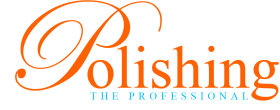
Congratulations on cracking the interview for your dream job! It’s time to let your potential employer know why you are an outstanding candidate. First, let’s talk about those tough but typical interview questions and how to get through them.
Describing Your Setbacks or Weaknesses
“Tell me about your weaknesses?” is one of the most dreaded questions. While you’re trying to impress the interviewer with your strengths, naturally they want to know about the areas that need growth. Follow these tips to learn how to sound accomplished even when talking about your weaknesses.
- Be moderate. Steer clear of anything so significant that could likely sink your chances of getting a job offer. However, choose an insignificant flaw that is not a deal breaker. On the other hand, you can give out your weakness and explain what you are doing to actively improve it.
- Focus on learning. Prove that you’ve learned from your past mistakes. For example, refer to a time you made an embarrassing typo in a business proposal that made you a meticulous proofreader. Showing how you now take action to prevent future mistakes of the same kind shows your efforts to be the best you can at your job.
- Practice accountability. Next, take responsibility for your performance whether it is good or bad. Without a doubt, your employer is eager to know you will stand behind your work and resolve issues quickly. Taking accountability shows resilience to be better than you were without being asked.
- Refer to flaws that play a small role in your work responsibilities. For example, an accountant who struggles with public speaking raises less concern than one who needs help with decimals. This could be a problem that seems like a weakness but does not interfere with your work often.
Discussing Your Achievements and Strengths
Listing your assets in an interview can be delicate because you want to seem extraordinary without sounding arrogant. Keep a humble demeanor while discussing achievements and be open to questions about how you got there.
- Remain relevant. Remember to use qualities that are mission-critical as the base for your talking points. For example, if your old boss was looking for someone to reduce the company’s travel costs; describe how you successfully cut the budget in half. Relevant resolutions show how well your problem solving skills are under pressure.
- Tell vivid stories. Create a personal connection by letting your enthusiasm shine through. Additionally, provide interesting details that show exactly how you tackle a project. However, don’t make the story long and pointless. Make sure to be concise while telling a story. Whether it is about demonstrating dedication, resilience or a problem solved, keep it relevant to the job.
- Distinguish yourself. You will be more desirable for the position you seek if you offer a unique quality to add to the job. Setting yourself apart from others in an effortless way will put you at the top of the list. Perhaps you are the only candidate who speaks three languages or knows how to work a difficult software. Make sure you expand on those unique qualities and how they can be applied to the position.
Negotiating Salaries
Money matters can be tricky to bring up during the first interview. A wise approach will keep you under consideration without reducing your chances of landing the position. Be sure to be polite and not seem like you are there just for a paycheck.
- Postpone negotiations. Let your interviewer know if your requirements are flexible. In any case, salary may be just one factor in your decision-making. Consider other benefits offered with in this position that matter to you. In any event, making sure your work is compensated for in other aspects is also worth noting.
- Speak in ranges. Politely ask the interviewer if they can provide their salary range first. If you mention your figures, consider if you will be happy with the low end. If you are not happy with the salary offered ask what it would take to get an increase over time. A question like, “Are raises or promotions offered over time?” can help lead the conversation. It is good to have a time frame of how often employees are given a raise. It will help you asses how valuable you are to the company.
- Research your market field. Find out what the typical salary range is for the job position. Undoubtedly, having knowledge will strengthen your bargaining of the position. If the offer is on the lower end reference your qualifications and ask if they would consider a higher pay based on your experience. Be sure to have met all the qualifications for the position before asking for the higher end of the range.
Posing Your Questions
Often interviews conclude with an invitation for you to ask questions about the company in more detail. Posing thoughtful questions will make you memorable and strengthen your case for being a good fit for the job. Make sure to have researched questions specific to the company before the interview.
- Repeat your strengths. Use your questions to summarize and recap your qualifications. For example, asking about the company’s social media strategy could help you understand the approach to their audience. Showing interest in their strategy and adding how you would apply your skills to fulfill the role is important.
- Be courteous. Watch for signs that the interviewer is looking to complete the session. Similarly, be tactful in approaching subjects that could be helpful but controversial to discuss. Your interviewer may be open to commenting on negative news stories about the company or want to avoid the topic altogether.
- Assess your prospects. Determine if you truly want the position being discussed. While getting a job offer is flattering, assess if this is an advantageous career move for you. More importantly, ask about the organizational culture, training opportunities, and growth plans. Finding out if you are a good fit with the company culture can foreshadow the length of your stay with the position.
Responding to difficult interview questions can be daunting although it does not have to be. By using these tips as a guide you are ready for your next interview. Remember to rehearse your answers in advance to be safe. Do not cave into pressure and remember to stay calm. You will impress your potential new employer with confidence and assertiveness.
JUN
2023
